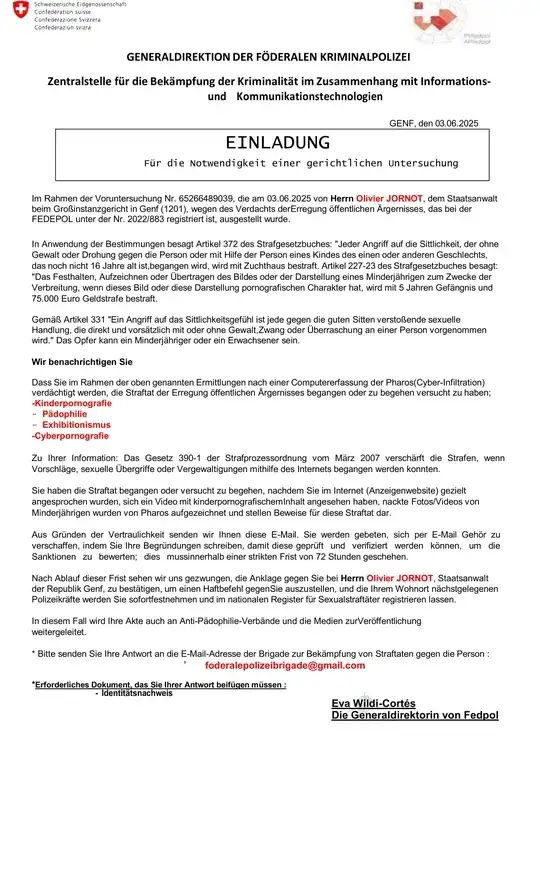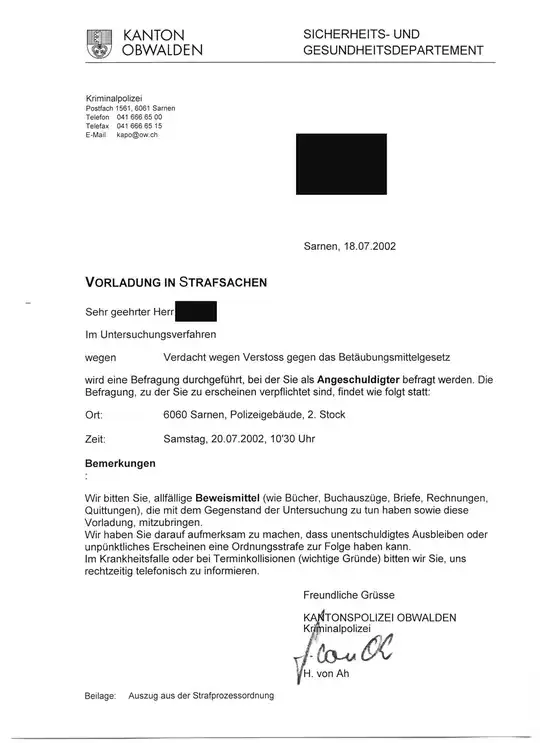TL;DR;
I keep getting fake E-Mails from "the federal crime police" with attachments like in the image below, where I'm accused of child pornography and exhibitionism. I don't know what the spammers intend with these mails, as there's no link to click or something (and hopefully nobody believes @gmail.com is a reasonable address for a state attorney).
But this brought me to this question: How would a real letter about an accusation look like? And could that be delivered by E-Mail? How would I be informed if I really committed any (internet) crime?
About the Text
Obviously, this "Einladung" (invitation) is fake. The german text is obviously AI-generated and thus full of nonsense: It attempts to quote several sections of the swiss criminal code, but fails seriously (the quoted text doesn't exist in the law, and the articles with the provided numbers contain nothing even close to what is quoted, so it's unlikely that this is just bad translation). Then it says I'm accused of "Erregung öffentlichen Ärgernisses" (Indecent Exposure) which is just a misdemeanor (e.g. walking around in public naked), by committing (in red print) child pornography, pedophilia, exhibitionism and cyber pornography. Completely illogical.
The only things right in the letter is that the state attorney of Geneva is named Olivier Jornot and the design of the logo of the swiss confederation in the top left corner (although even that is questionable, as an investigation by the state of geneva probably wouldn't carry the logo of the federation nor the signature of the director of the federal police).
Near the end, it says that if I'm not providing an identity document to the given e-mail (again, in red), the sender will request an arrest warrant against me from the state attorney. They just sent me a letter, so they know my address - at least in a reasonable world!

